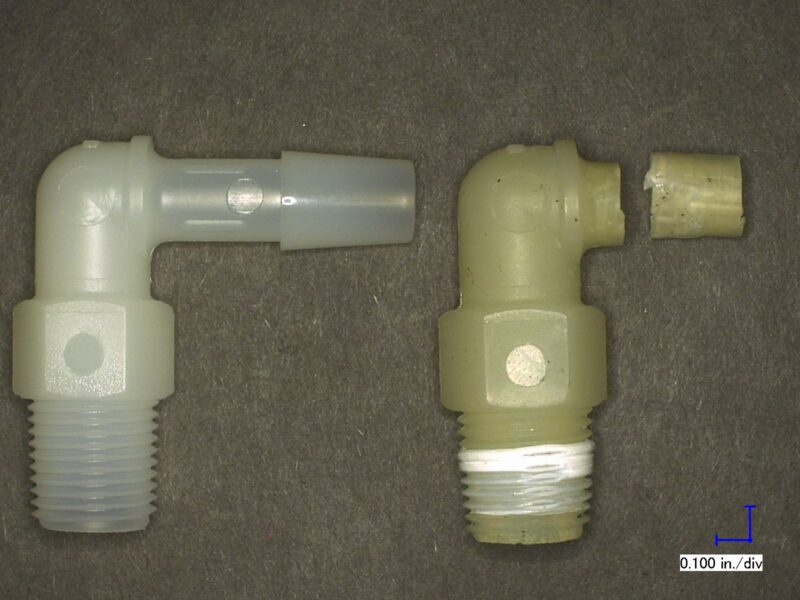This article originally appeared in Plastics Engineering Magazine – January 2015
Multiple mechanisms can attack polymer chains—here’s what can go wrong.
Molecular degradation is a leading cause of plastic component failure, with a study indicating that 17% of plastic failures are associated with a degradation mechanism. In generic terms, molecular degradation of a plastic is the deleterious alteration of the molecular structure within the polymer as the result of a chemical reaction. Importantly, degradation mechanisms principally involve a permanent reduction in molecular weight as a result of the chemical reaction. There are numerous molecular degradation mechanisms, but the most common are:
- Thermal oxidation
- Ultraviolet radiation
- Chain scission
- Hydrolysis

Reference and failed connectors, shown as received. The failed parts exhibited brittle fracture and significant discoloration.
The dominant mechanism of molecular degradation and the extent of degradation are dependent on the composition of the plastic resin and the surrounding environmental conditions. Significant property reduction can occur within most polymer families as a result of molecular degradation. All forms of degradation represent chemical reactions that result in molecular structural changes that are accompanied by noted decreases in physical properties. The reduction in molecular weight associated with degradation inherently leads to lower ductility due to the accompanying loss of entanglement of the now shortened polymer chains. This reduces the energy required for disentanglement/slippage to occur and shifts the preferred mechanism from ductile yielding to brittle fracture.
The manifestations of molecular degradation can include:
- Loss of mechanical properties, which can lead to embrittlement and catastrophic failure
- Reduction in chemical resistance
- Aesthetic changes
- Evolution of volatiles, and associated foul odors
- Carbonyl formation and loss of dielectric properties
Molecular degradation can occur throughout the lifecycle of a plastic component. Regardless of when the degradation occurs, the effects can lead to premature failure of the component.
